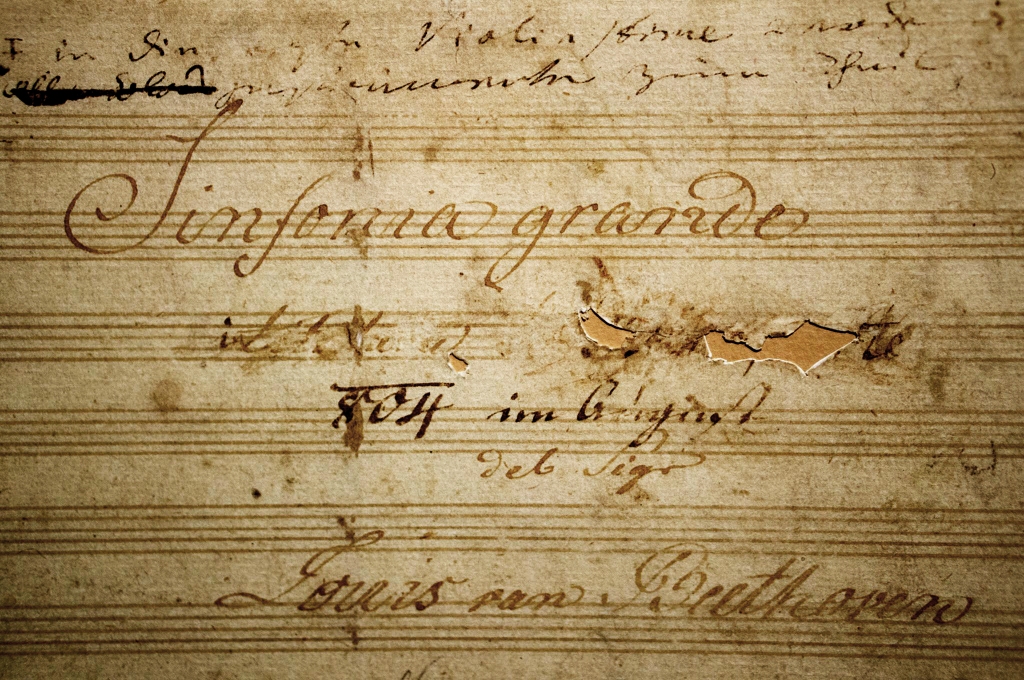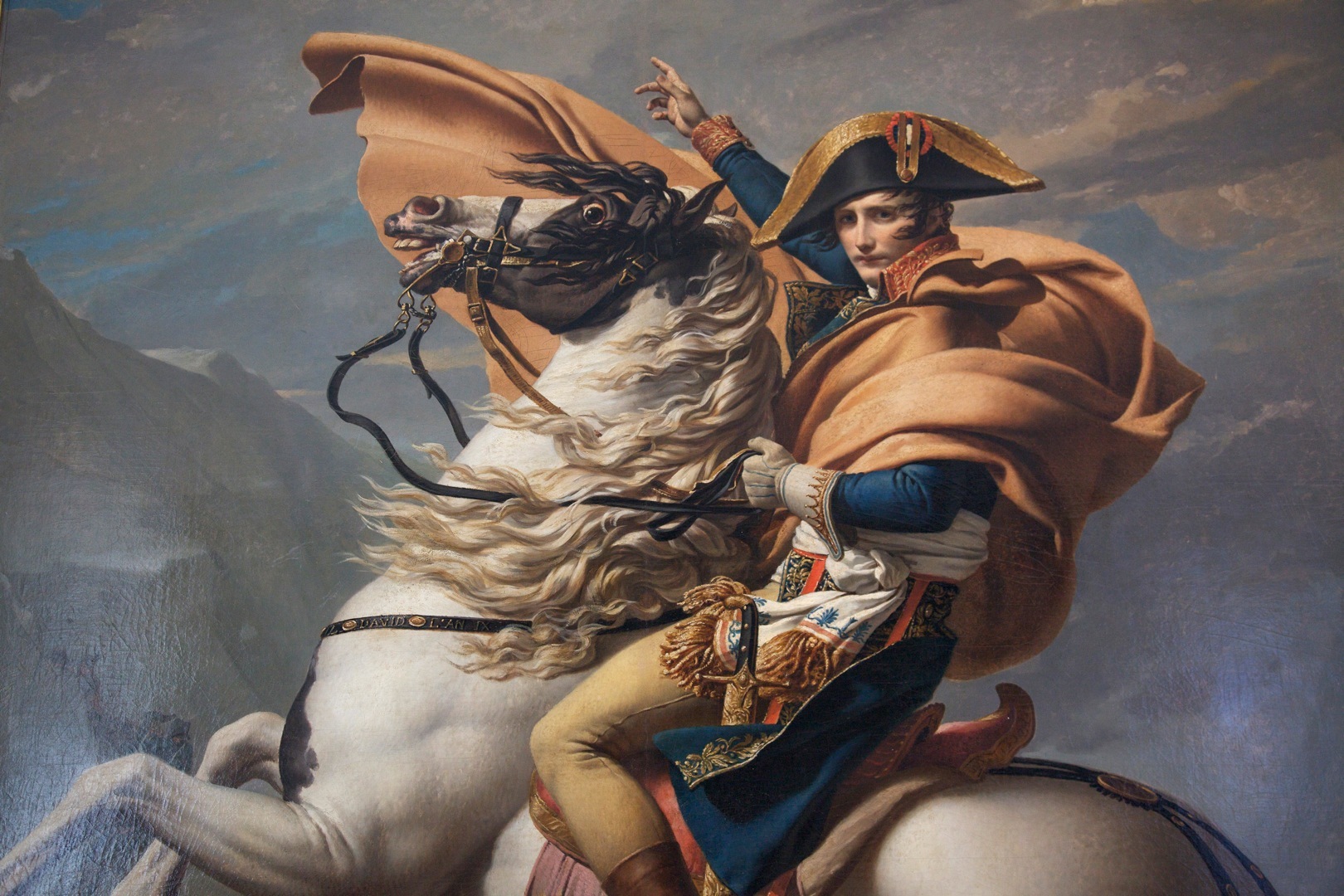Written by Mason Vander Lugt, Syracuse University catalog librarian and proprietor of the historical music blog Dinosaur Discs.

The grand drama of Beethoven’s Eroica Symphony was born in a complex meeting of the composer’s notorious temper and an internal conflict between his republican sentiments and aristocratic ambitions.
Bonaparte was born in 1769, only a year before Beethoven. His father was the consulate of the newly-french Island of Corsica, and he began military training at age nine. He quickly ascended the ranks of the Revolutionary army after proving his talent for military strategy in the 1793 siege of Toulon.
Beethoven was born into a similarly tempestuous musical milieu. He also showed unusual promise early in life, and was making public performances in the court musical traditions of his father and grandfather by the age of seven. He studied counterpoint with Joseph Haydn beginning around 1792, and by 1800 was well known for his quartets, piano concerti, and sonatas, including the “Moonlight sonata”, completed in 1801.
Fortunately, he was as confident as he was talented, and in spring 1803 left his post at the Vienna opera to spend the summer in Döbling, determined to compose his masterwork. His pupil Carl Czerny recalls him saying “”I am not satisfied with the work I have done so far. From now on I intend to take a new way”.
Beethoven’s third symphony, the “Eroica”, was a work of revolution in itself. In it, the composer abandoned the comforts and confines of his formal music education and embraced and expanded the radical developments in the symphonic form made by Mozart and Haydn. When Jean-Baptiste-Jules Bernadotte, the French ambassador to Austria, suggested that the ambitious work be dedicated to the freshly appointed First Consul (Bonaparte), Beethoven must have understood his unique opportunity to align his work with the progressive leader of a new era¹. He may not have understood the scope of Bonaparte’s own ambitions in his chosen field.
Napoleon’s Consulate seemed to represent a marked departure from the decade of bloody revolution that preceded it. The relatively peaceful coup of 18 Brumaire (Nov. 1799) consolidated French republican interests under a single democratic leader. In the same year, he made first steps toward a peace with Britain that would eventually become the treaty of Amiens (though he betrayed this relationship soon after the treaty was enacted). His concordat with the Catholic church in 1801 suggested that he was interested in diplomatic solutions between radically opposed groups of the population.
I imagine Beethoven felt double-crossed by the Consul’s apparent change of heart and direction, and acted in anger in tearing the first manuscript of the Eroica. The first published version in 1806 bore the inscription “per festeggiare il sovvenire di un grand Uomo” – “to celebrate the memory of a great man.” His later comments reflect an eventual change of heart – he is later quoted as saying “”Napoleon! … Formerly I disliked him. Now I think quite differently” ².
- W.A. DeWitt – Beethoven’s Eroica Historical Overview.
- Christopher T. George – The Eroica Riddle. Napoleonic Scholarship, Dec. 1998.


